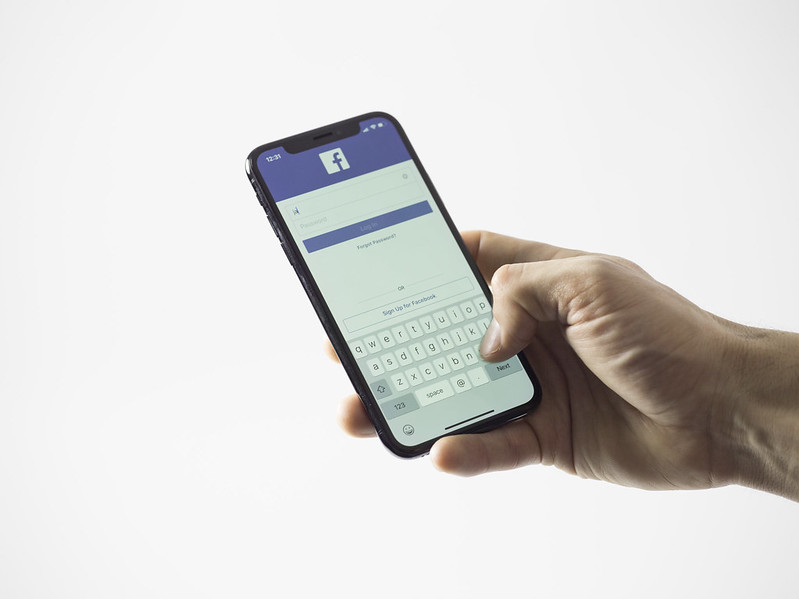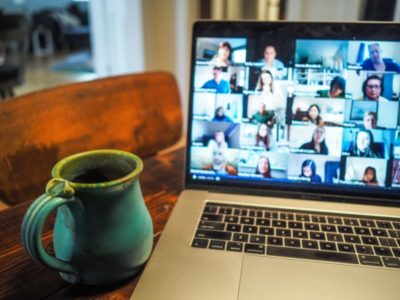It’s a Saturday night. You’ve got nothing to do and an entire evening of relaxation in front of you. You’ve been waiting for this night for ages. You passed in all of your papers, finished all your assignments and you’re ready to lounge around with some Netflix. Then you start scrolling through Instagram and you feel that familiar, icky feeling creeping up on you.
We’ve all been there. That’s what we call FOMO, or the ‘fear of missing out.’

If you’ve been to college, you’ve definitely felt it. The legendary college experience means making crazy memories that you’ll hopefully be telling stories about later in life. At least, that’s what everyone tells us. College is supposed to be the best four years of your life, but what happens when a deadly virus steals some of those years from you?
When the COVID-19 pandemic struck in early 2020, the country went into lockdown and thousands of college students found their time on campus cut short. Many were sent home to take virtual classes for a full semester or even an entire year. You can imagine how thousands of people trapped at home creates a breeding ground for FOMO. Even now, while we slowly begin to recover from the pandemic, many students struggle to regain their lost time.
What is FOMO?

Surprisingly, there’s actual science behind FOMO! According to an article on Psychology Today by Nick Hobson, a study done in 2018 by Carleton and McGill University gave us some explanations for the phenomenon. Research found that “people whose behaviors felt more like personal obligations, including studying or working, were more likely to report greater FOMO.”
More importantly, the researchers found that it had nothing to do with personality nor did it matter whether the person found out about a social activity through social media or somewhere else. FOMO affects everyone, no matter what they do or what their personality is like!
Why FOMO Got Worse During the Pandemic

With all the research done, FOMO comes mainly from comparing ourselves to others while also being heavily linked to social media usage. Studies show that when people feel like they’re missing out on something, many of them automatically turn to social media to find a connection. During the COVID-19 pandemic, social media usage skyrocketed while everyone tried to balance safety with having fun. Being unable to go to campus made the transition out of the college experience even harder for graduating seniors.
“The best way I could describe it was that I feel like right now, I’m trapped in time while everyone else is moving forward,” Northeastern University sophomore Neha Prasad said. “It was kind of hard being at home for over a year while most of my friends had the college experience and I was experiencing everything through a screen.”
While some people braved the COVID-19 struggle from home, others got a face full of FOMO back on campus. Students that returned to campus after a semester in lockdown weren’t out of the woods just yet. Campuses enforced new safety measures that all students had to abide by if they wanted to come back. People were suddenly juggling work with life, while keeping in mind safety guidelines all at the same time!
“A lot of people would still go out and do fun things and post about it. I was happy for them, but it also made me wonder if I was doing something wrong by staying in,” Penn State junior Arashleen Pannu said. “I was scared that I was either wasting time by not going out and doing things, but at the same time I wanted to keep me and my family safe. There was this whole conflict between wondering if I was wasting my youth and losing time I’d never get back versus staying safe and respecting guidelines.”
The pandemic left tons of college students hanging in the balance between wondering how to stay safe while fighting off FOMO. Luckily, FOMO isn’t an unbeatable foe!
How to Overcome FOMO

Here’s one major tip that I think everyone can agree on: it’s important to establish boundaries with social media. Since FOMO is directly linked to social media platforms, it’s important to limit the time you spend scrolling through Instagram or Twitter! Set aside some time everyday where you check your social media accounts.
Some people like to check them in the morning or in the evening after they come back from work or school. Limiting the number of hours you spend watching everyone else post about their lives can help you focus on coming up with fun or productive things to do yourself. It can even help alter your perspective by reminding you what’s really important during a time like the pandemic.
“It was a pretty tough time for everyone and the people that were being more social and outgoing in the beginning of the pandemic didn’t foster jealousy in me,” UMass Amherst junior Prisha Singh said. “When I saw them on social media, I just thought, ‘wow that’s unsafe and dangerous.’”
It’s also important to keep in mind that social media never shows us the bigger picture! What might look like someone having a blast at a party could actually be a snippet of a day that in reality turned out terribly. To really overcome FOMO, it’s important to be proactive! The pandemic put a huge damper on social activity for a whole year, but reaching out to friends who you haven’t seen in a while helps greatly with reconnecting. Just be sure to stay safe and respect the public health guidelines while you take those steps toward crushing post-pandemic FOMO!



















